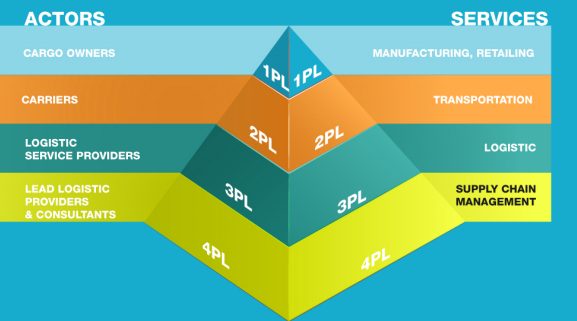In the fast-changing world that is today's supply chain landscape, learning the difference between the different types of logistics companies can be quite confusing. While each type of logistics provider serves a specific purpose, it's important to remember that there are varying degrees of expertise and capabilities among each.
What Exactly Defines Third-Party Logistics (3PL)?
A 3PL is a provider that manages another company's entire logistics department, either for a specific region or for all of its markets. This includes services such as transportation, warehousing, inventory management, cross-docking, order fulfillment, and more. Businesses partnering with a 3PL provider benefit the most from efficiency, scalability, and industry expertise. The flexibility offered by 3PL providers is particularly beneficial for companies that experience fluctuations in demand or those entering new markets. This type of partnership also helps to lower a company's warehousing and transportation costs by lowering the capital investment and maintenance costs a business would incur otherwise.

What about the other types of logistics providers?
- First Party Logistics (1PL)
- Second party Logistics (2PL)
A 2PL arrangement is when a manufacturer does its own warehousing, but outsources specific transportation functions to external service providers. Companies engaging in a 2PL with another provider may choose to delegate LTL, drayage, rail, air freight, or other tasks to specialized partners. This allows businesses that are great at certain areas in their distribution process but lacking in others to focus on what they do best while depending on experts for specific transportation functions.
- Fourth Party Logistics (4PL)
At a high level, 4PL providers take on a more strategic role in the supply chain. Instead of executing logistics tasks themselves, they act as orchestrators who oversee and optimize a company's entire supply chain. 4PL providers work to connect their network of 3PLs with their customer base of distributors, ensuring seamless coordination and integration of services. This type of provider has a wide scope of responsibilities when it comes to managing technology, systems, and processes. It is a strategic approach that allows manufacturers to achieve higher levels of visibility, and provides a manufacturer with one point of contact when it comes to growing their logistics needs.
Spartan Logistics has provided its customers with 3PL services for 35 years and counting. In addition to having an experienced staff of dedicated professionals, we have a custom 3PL software that was designed specifically for the warehousing industry. We are always open to discussing potential opportunities and building mutually beneficial relationships for both existing and new markets. Looking for 3PL solutions? Contact the team at Spartan today.
Topics: Common 3pl Questions

